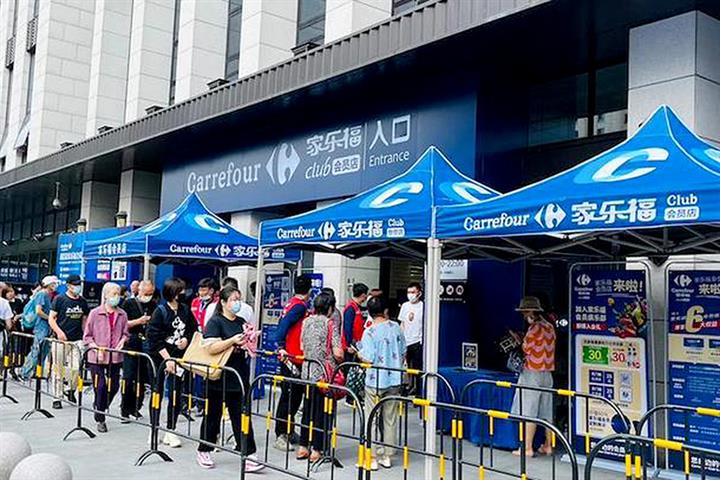 Carrefour to Accelerate Membership-Only Model in China
Carrefour to Accelerate Membership-Only Model in China(Yicai Global) Oct. 15 -- French retail giant Carrefour is increasing the number of members-only warehouse stores it plans to open in China to compete with the success of big-box retailers Costco, Metro and Sam’s Club.
Carrefour will upgrade 100 hypermarket outlets in the country into members-only stores over the next three years, Tian Rui, chief executive of Carrefour China, told Yicai Global today. The previous plan had been to open 30 such warehouses between 2021 and 2026.
Carrefour China only announced its intention to enter the members-only club in August. Its first members-only store is scheduled to open in Shanghai at the end of the month. The Massy-based firm plans to open two this year and more than a dozen in eastern China next year. By 2024, there should be a Carrefour membership store within a 15-minute drive in Shanghai, Tian said.
The members-only store market in China is still maturing, so now is the perfect time for Carrefour to enter, Li Xinlin, deputy general manager of Carrefour membership stores, told Yicai Global.
Compared with ordinary supermarkets, members-only stores are usually huge hypermarkets that focus on large-package goods and enjoy a competitive advantage by controlling operating costs and cutting product prices. They tend to have a relatively high per customer transaction rate which contributes a lot to sales. The membership model has gradually become more popular in China as consumer spending power increases.
Carrefour China plans to raise the proportion of imported goods to as much as a quarter, said Wan Jiugen, product director of Carrefour membership stores. It will set up direct sourcing departments in Europe to ensure a smooth supply chain, he said. The company is also planning to quintuple the number of inhouse labels to 200, to account for 11 percent of its products.
Carrefour entered the Chinese market in 1995. The French retailer expanded rapidly early on and secured a relatively large market share, but profits fell as competition increased. In 2019, it sold 80 percent of its loss-making China business to local retail giant Suning.com for CNY4.8 billion (USD742.5 million).
Editor: Kim Taylor